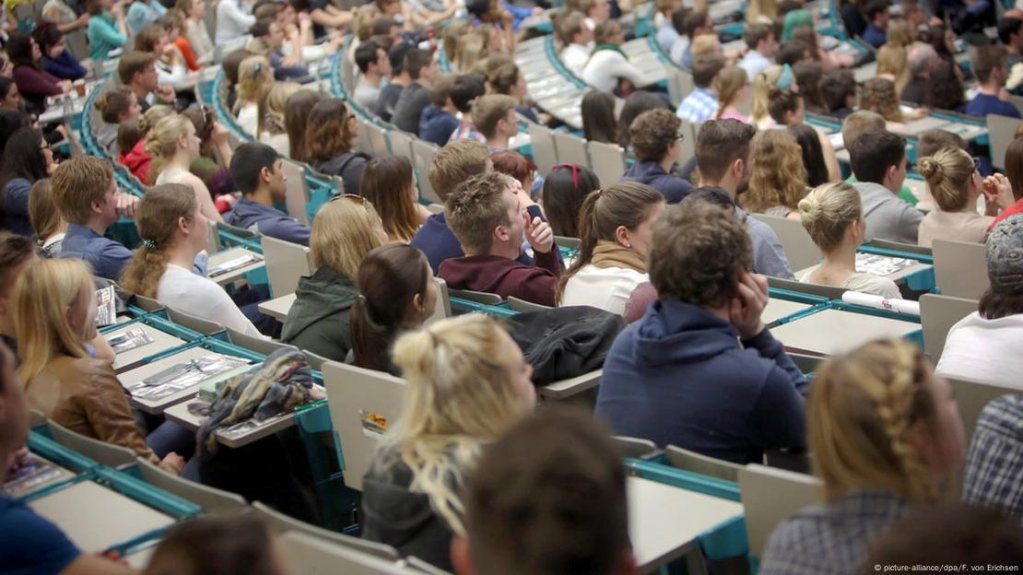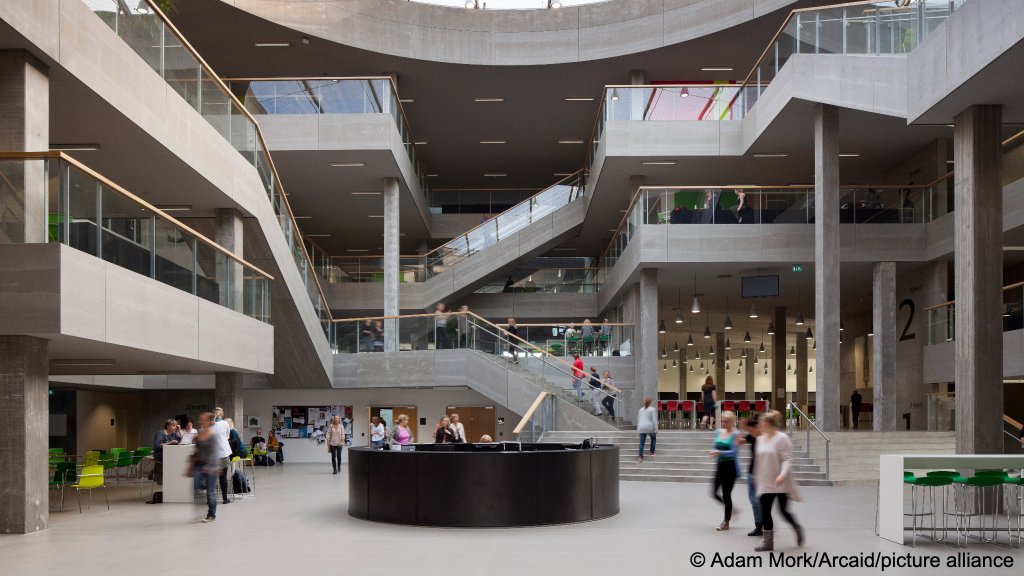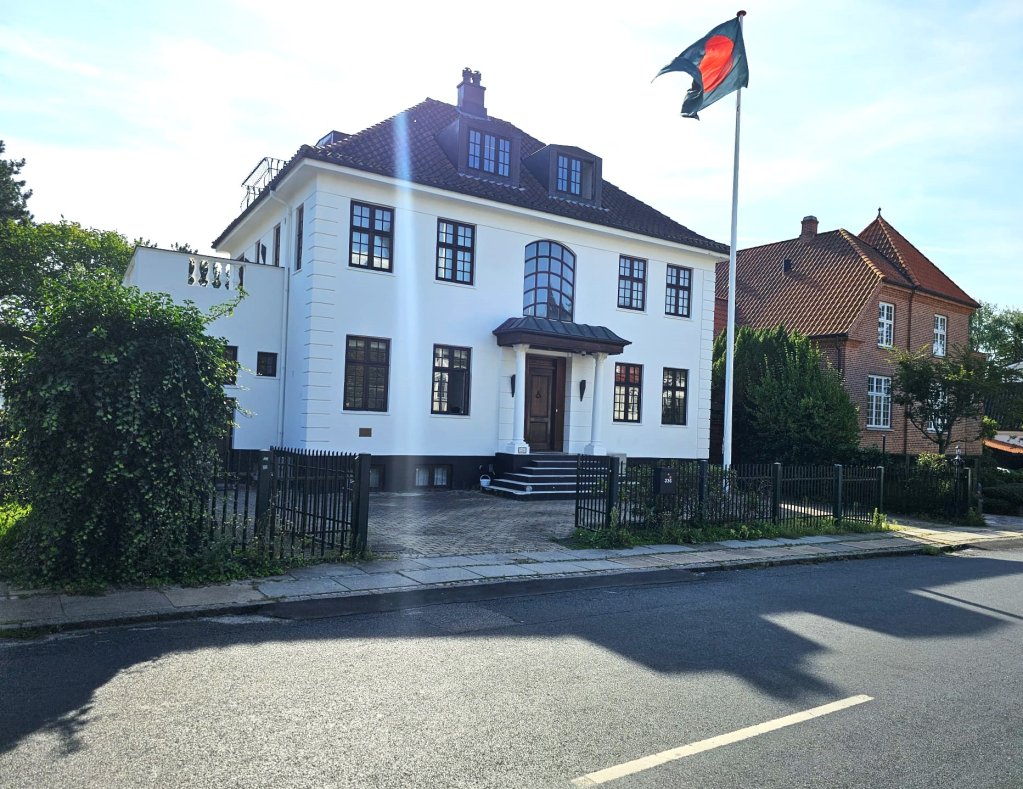Denmark has announced plans to tighten its visa policy for Bangladeshi students, in particular those embarking on Master's Degree course programs, to prevent a study stay in Denmark from being used as a backdoor to enter the Danish labor market. The move has been met with criticism, especially amid other changes being introduced to the Danish labor market, which appear to make it more open and liberal -- but only to certain countries.
There has been a significant increase in the number of foreign students in Denmark, especially coming from Bangladesh and Nepal, between 2022 and 2024. The comparatively high proportion of students from these two countries who bring family members with them has prompted concerns about the real motivations behind this trend.
In response, the Danish government has now stated that it will become "significantly more difficult for citizens from third countries, such as Bangladesh and Nepal, to be admitted to Danish universities" -- especially for Master's Degree courses.
"A national requirement (will be) introduced that universities must verify foreign educational documents before they can offer admission to a degree program," an official statement further highlights, adding that students "who do not follow their studies in practice are sent home more quickly."

Read AlsoMake repatriation rules more effective – Denmark takes over EU presidency
Student visa allegedly used as a loophole
The announcement came partly in response to the a recent survey by the Ministry for Higher Education and Research, which found that one third of Bangladeshi students at Aarhus University "do not appear study-oriented" but are instead motivated by the idea of staying in Denmark, with only about two third of them passing their exams, compared with around 90 percent for other foreign nationalities.
Bangladeshi students at Aarhus meanwhile also had a first-year dropout rate of 13 percent in 2023 and 2024, compared to four percent with other international students, while up to a quarter of Bangladeshi students who had registered for exams failed to appear, compared with six percent of other international students.
To establish better standards, entrance exams or targeted language tests may also be introduced at the discretion of universities in certain cases, in addition to the government upping all checks on foreign educational documents and certificates from Bangladesh and Nepal.

Read AlsoWhy are Nepalese shunning Gulf and Asia to work in the EU?
No more family reunification for students
To combat the possibility of education being used as a loophole to gain a foothold in Denmark, the government added that it will also tighten the overall requirements for admission, and that it will furthermore remove the possibility of bringing family members for students from third countries.
The grace period granted upon successful completion of an academic course will also be shortened; currently, students automatically receive a 3-year job search visa after completing their education, which in future will reportedly be shortened to one year.
The government meanwhile will also up its bureaucratic procedures to perform checks, aiming to make it more difficult for foreigners "to obtain a study residence permit on the basis of false documents."
Government departments support action against students
Minister of Immigration and Integration Kaare Dybvad Bek said that the higher education curriculum had "been exploited as a backdoor to the Danish labor market."
"We have seen a huge increase in recent years in students and accompanying families from Bangladesh and Nepal in particular. We know that students from these two countries have a higher dropout rate than other foreigners, and that there are challenges with their academic and language level. At the same time, they work more than other foreign students, and to a much greater extent, this is unskilled work."
Minister of Education and Research Christina Egelund doubled down on the same message, stressing that "(s)tudy stays should be for those who want to study. Not for those who abuse the rules and use the study stay as a backdoor to the Danish labor market."
"Through our study programs, we bring talented international students to the country every year, which is a great gain – we must not waste that. That is why we take targeted and effective action to prevent cheating. Our initiatives are based on a solid foundation of knowledge, and we intervene where it makes a difference – without closing the door to all talented students who want to complete an education in the country," she added.
Bangladesh Embassy 'deeply concerned'
The Bangladesh Embassy in Copenhagen responded by saying that the Danish government was generalizing the ongoing development, which is described as "both misleading and unfair to the many genuine students who are pursuing their studies in Denmark with sincerity and commitment."
"The Embassy of Bangladesh in Denmark is deeply concerned about reports suggesting that Bangladeshi students are misusing student visas as a pathway into the Danish labor market," it added, however, in the same statement.

According to the embassy, the high rate of students from Bangladesh engaging in work in Denmark was largely based on the high cost of living in the Nordic country, stressing that many "find themselves under financial pressure and therefore take part-time jobs — fully permitted under Danish law — in order to support themselves."
"In some cases, this has impacted their academic performance. This does not, however, call into question their talent, integrity, or intentions. It is important to underline that the majority of Bangladeshi students are hardworking, law-abiding, and contribute positively to Danish universities and society," the embassy further elaborated.
The Bangladesh Association of Students and Alumni in Denmark has meanwhile referred to the new rules as an extension of "narratives that misrepresent the Bangladeshi community," particularly from Danish media and politicians.
Universities also reacted to the latest developments, attributing the challenges that students from countries like Bangladesh face to being "unfamiliar" with exams and group work and struggling to keep up with teaching standards.
Read AlsoDenmark's EU Presidency puts migration reform center stage
High proportion of accompanying family members
Students from Bangladesh made up the largest group of international students, who began a Master's degree program in Denmark in 2024, followed by students from neighboring Germany and then Italy.
While only one percent of residence permits for Chinese students and two percent of residence permits for students from the United States were linked to residence permits for accompanying family members, nearly 60 percent of all Danish residence permits to Bangladeshi nationals issued were for students from Bangladesh, while almost 70 percent of residence permits were for students from Nepal.
More liberal work visa policies to be introduced
Against the backdrop of this ongoing diplomatic standoff, the Danish government also recently announced the introduction of new ways of obtaining work permits for foreigners wishing to come to Denmark, starting next year.
Employers in Denmark will be able to hire workers from a list of selected countries as long as their wages are in line with collective agreements.
This marks a departure from the current policy, which allowed companies with at least ten employees to hire staff from abroad at lower wages.
Trade unions have welcomed the deal, saying it will help address the labor shortages.
Minister for Employment Ane Halsboe-Jorgensen called the deal a "breakthrough," adding that it was "a clear strengthening of the Danish model."
Currently, there are 16 countries on this list, including the US, China, Brazil and India. Bangladesh, however, is not included on the list.
There will be no upper limit to how many foreign employees will be allowed to enter Denmark through this new scheme, though the Ministry of Employment said it estimates that 550 people will enter the country under the scheme by 2030.
Read AlsoWhy Denmark is clamping down on 'non-Western' residents
